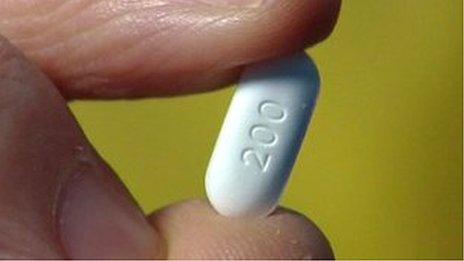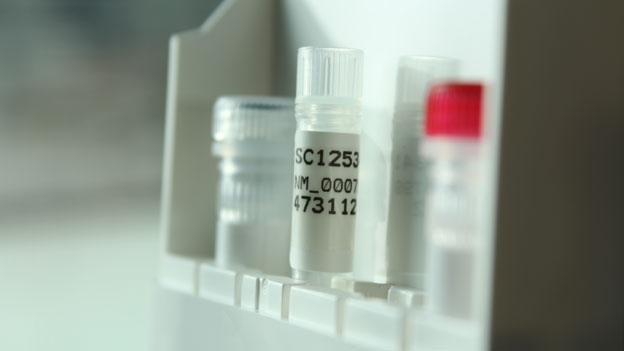Study shows 'brain doping' is common in amateur sport
- Published

The abuse of medicines intended for cognitive enhancement is significant among amateur athletes
Taking substances to enhance the brain is more popular among amateur athletes than taking drugs to boost the body.
Researchers in Germany found that 15% of recreational triathletes admitted to brain doping, using prescription medicines that increase attention.
Some 13% of competitors reported using physical enhancers like steroids or human growth hormone.
Brain doping is more popular say the scientists, because many of the substances aren't banned.
The research has been published, external in the journal Plos One.
Previous studies have shown that, among amateur competitors, the use of performance-enhancing substances, external is widespread.
This new work used the responses of almost 3,000 triathletes taking part in events in Germany, to analyse the broader picture of physical and cognitive doping.
Researchers believe that many so-called "smart drugs" are being widely used to enhance mental functions outside the patients groups, external they have been designed to help.
They are also concerned that competitors in a variety of sports may be using these substances to gain an edge.
In the study, participants were asked whether they had used physical or brain-enhancing substances in the past 12 months. Overall, 13% said they had taken drugs like EPO, steroids, or growth hormones.
When it came to brain enhancement, 15.1% said they had used products including amphetamines, or medicines like modafinil or methylphenidate. Significantly more men than women admitted to both types of doping.
Realistic rate
Between 1% and 2% of athletes in elite sport return positive tests, according to figures from the World Antidoping Agency (Wada), though officials admit this is likely to be an understatement, external.
In baseball, up to 8% of major league players have been diagnosed with attention deficit hyperactivity disorder (ADHD) and prescribed medications. Many critics feel that this is brain doping in action, external, as the medications can improve baseball players' concentration.
However, amateur athletic competition is very different.
"We were not too surprised at the extent of cognitive doping," said Prof Perikles Simon, from the University of Mainz, one of the authors.
"I think it is quite realistic and it goes hand-in-hand with the prevalence rates that have been found in the US at the college level."
The scientists were interested to find a high crossover between athletes who used both forms of doping. They believe that there is a spectrum of substance use that can include legal enhancements such as nutritional supplements.
Athletes who show a "general propensity to enhance" can end up taking illegal and dangerous materials.

American sprinter Kelli White tested positive for the stimulant, modafinil, at the World Championships in 2003
"There is some searching for additional help, we found a strong connection between those taking legal cognitive enhancers and those taking illicit ones," said Prof Simon.
"There seems to be a certain proportion of our society that is willing to take a bit more of a risk to gain an advantage."
The authors believe that the sporting status of cognitive enhancement may be affecting the attitudes of some of these amateur sports participants.
Athletes are aware that physical doping is forbidden and drug testing is common in triathlon competitions, including amateur ones.
However the use of cognitive substances is not associated with sanctions and therefore abusing them may seem a lesser infringement.
The researchers believe this reflects attitudes in society where the taking of ADHD medicine doesn't carry the same stigma as using steroids.
The authors say their research leaves many unanswered questions about brain doping.
Prof Simon said: "On the cognitive level, we don't know enough about these substances. Is there is a hyper performance effect?"
"What we know is that if you are a patient you are going to perform better than before, but if you are already a high-level performer we don't know if there is an effect. That's the big question."
The researchers warn that, regardless of the enhancement, abusing brain doping substances can have damaging impacts in the long run.
Follow Matt on Twitter, external.
- Published3 April 2011
- Published4 January 2013

- Published12 January 2014
